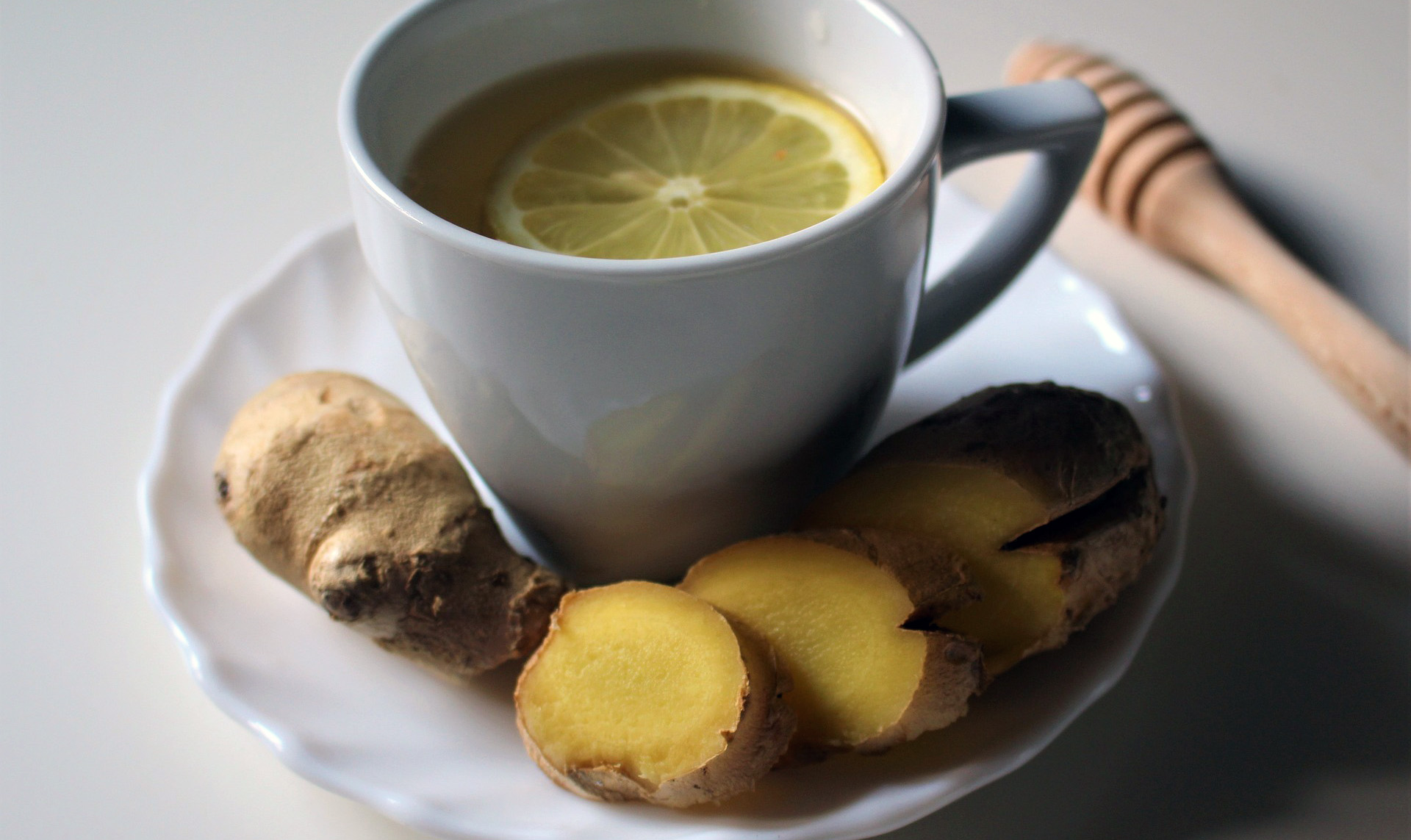5 Natural Remedies for Immediate Digestive Relief

PREMIUM CONTENT for MEMBERS ONLY
By Fiona Riddle
Common digestive disorders and stomach issues are a common yet uncomfortable part of life, and while eating a healthy diet, staying active and adopting healthy lifestyle practices can prevent discomfort in the long run, some days we need immediate relief. Instead of constantly reaching for an over-the-counter drug to ease your pain, there are numerous natural remedies backed by science that can bring almost immediate relief, plus they are affordable and readily accessible.
“Multiple studies have shown ginger to be significantly more effective in reducing nausea than a placebo.”
Ginger, for example, has long been used as digestive aid to soothe the stomach and reduce feelings of nausea and bloating. It is believed that Indians and Chinese have been using ginger as a tonic root for over 5000 years to treat a number of health conditions and recent research has been able to back up these claims. The “anti-inflammatory, antioxidant, antitumor, and antiulcer effects of ginger have been proven in many scientific studies,” and multiple studies have shown ginger to be significantly more effective in reducing nausea than a placebo.
Much of ginger’s benefits can be attributed to the polyphenol gingerol, which gives ginger its characteristically spicy taste. Like all polyphenols, gingerol is only absorbed after metabolism by the gut microbiota in the distal bowel. The compound also promotes gastrointestinal motility, consequently boosting digestive efficiency. You can think of it as activating digestive juices and warming the stomach up. Use fresh ginger or make a cup of ginger tea to alleviate cramps and nausea and reduce gas, indigestion, and bloating.
“…there is evidence that chamomile provides an overall immune boost which can prevent further complications.”
While ginger is known to activate digestion, chamomile is thought of as a digestive relaxant. Chamomile is another widely popular remedy for soothing the stomach due to its anti-inflammatory effects. This helps to relax digestive muscles in the gastrointestinal tract which can decrease the contractions often associated with discomfort. In one study, chamomile tea combined with other herbs was found to be more effective in treating colic in infants than a placebo, and there is evidence that chamomile may provide an overall immune boost. Chamomile can be consumed as a tea upon symptom onset and may help to relax the entire mind and body as well as the digestive tract.
While lesser known, fennel seeds are a powerful herbal remedy with compounds that stimulate the secretion of digestive juices and enzymes to improve digestion. The polyphenol anethole, the main constituent of fennel, has been found to provide these beneficial digestive and carminative, or gas relieving, effects as well as lower inflammation. Simply chewing on a small quantity of whole fennel seeds before or after meals can almost immediately alleviate uncomfortable bloating and excess gas.
“Even just a short 15-minute walk after meals can have profound digestive benefits, and making it a regular habit will optimize digestion long term.”
Moving your body is another effective and completely free way to reduce bloating and indigestion. Plus, it has a number of other benefits like balancing blood sugar, improving metabolic and cardiovascular health and boosting mood. Walking is beneficial for digestion because it stimulates peristalsis, muscle contractions that move food and gas through the digestive tract, helping to increase the rate of stomach emptying. A small scale study confirmed that walking right after a meal accelerates gastric emptying, and yet another study showed an increase in intestinal motility from 12 weeks of aerobic exercise. Even just a short 15-minute walk after meals can have profound digestive benefits, and making it a regular habit will optimize digestion long term.
“If you are chronically stressed or distracted while eating, the sympathetic nervous system is in control, and you may notice more frequent stomach aches and discomfort.”
Taking a warm bath and allowing your body to relax might not be the first thing you think of when dealing with a bout of digestive discomfort, but this act of self-care shifts the body more into a parasympathetic state. The parasympathetic nervous system is known as the “rest and digest” system as it allows the body to relax, decrease heart rate and focus more energy on digesting meals. Damage to parasympathetic nerves has been shown to cause “dysregulated colonic motility.” If you are chronically stressed or distracted while eating, the sympathetic nervous system dominates the control of gut function, and you may notice more frequent stomach aches and discomfort. Additionally, the warmth of a bath can provide relief by soothing and relaxing the muscles, especially when paired with Epsom salts for further muscle relaxation.
“Usage of NSAIDs has been linked to an imbalance of the gut microbiome”
But why opt for natural remedies if over the counter drugs work? Nonsteroidal anti-inflammatory drugs (NSAIDs), commonly known as pain relievers like Ibuprofen and Acetaminophen may provide short term relief for conditions like cramping and aches, however their usage may have a negative impact long term. Usage of NSAIDs has been linked to an imbalance of the gut microbiome as these medications can “directly impact the composition and function of the gut microbiota”. Ibuprofen in particular was found in one study to have a similar effect on the microbiome as antibiotics by inhibiting the abundance of individual microbes in the gut, essentially providing an antimicrobial effect.
Antacids or proton pump inhibitors like Prilosec are popular over the counter medications used to treat indigestion and act by neutralizing or inhibiting the acid in the stomach. This can help to alleviate symptoms in the short term, few well controlled studies have failed to show a greater effect than placebo. Plus, many of these antacid products are ultra-processed and contain artificial colors and flavorings, which have been associated with immunological consequences.
Utilizing natural remedies for immediate pain relief comes without the long-term side effect risks of drugs and can often be just as effective. Additionally, taking measures to improve gut health and minimize inflammation can prevent these uncomfortable situations from arising as frequently. While occasional bloating and indigestion is not cause for concern, if you struggle with chronic digestive issues, it may be a sign of underlying issues, and you should consult with your doctor. Adopting healthier diet and lifestyle habits can have profound effects. Eating a diet made up of high-quality whole foods that is low in ultra-processed foods, excess sugar and alcohol as well as prioritizing sleep, staying active and managing stress are all important for a healthy microbiome and an efficient digestive system.

Fiona Riddle is a Certified Health Coach with a degree in Psychology from UCLA. She is passionate about a holistic approach to health when working with her private coaching clients. She is an avid cook, constantly creating and sharing new recipes on her Instagram (@feelgoodwithfi) to showcase simple clean home cooking.
✓ This article was reviewed and approved by Emeran Mayer, MD